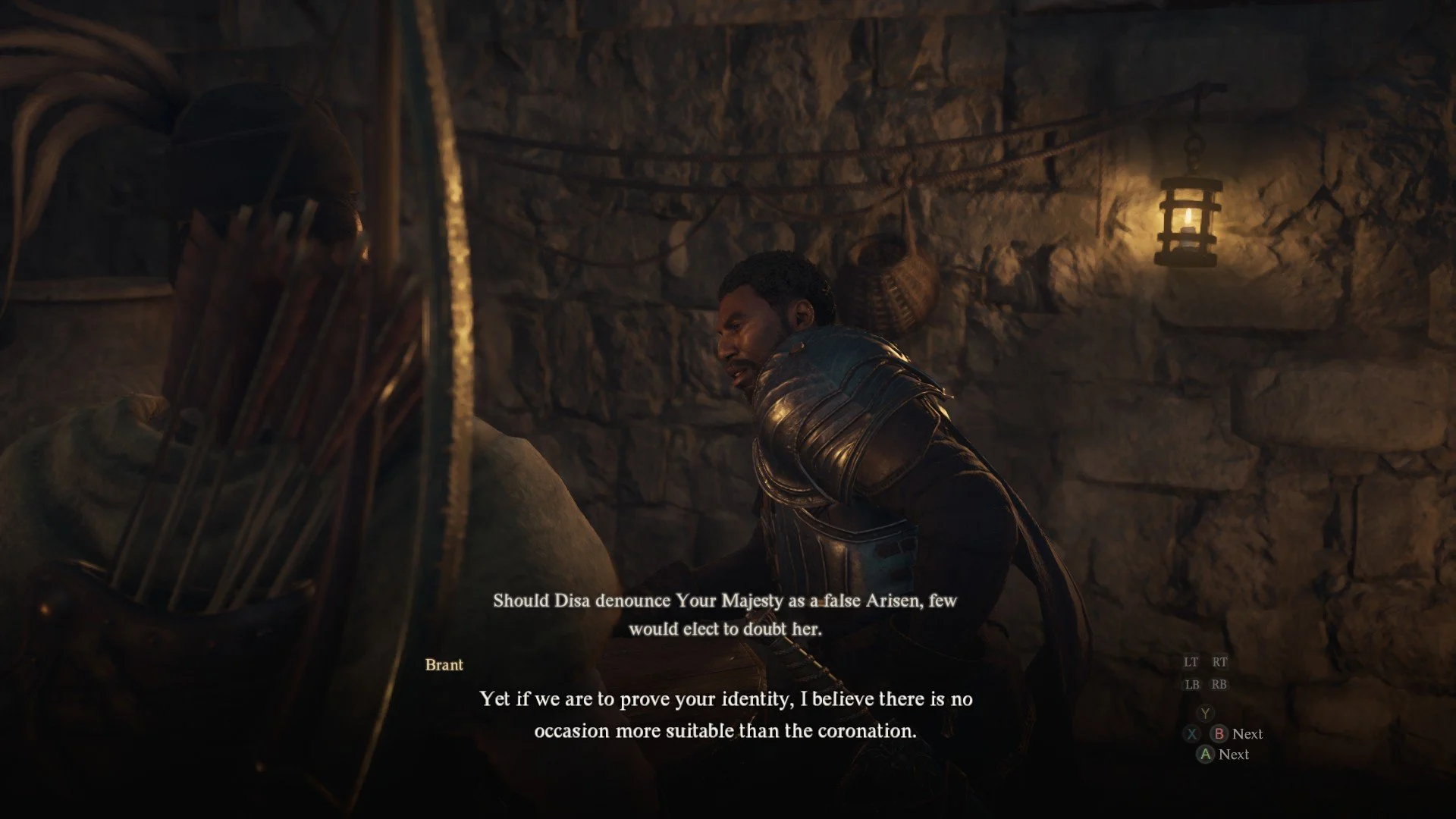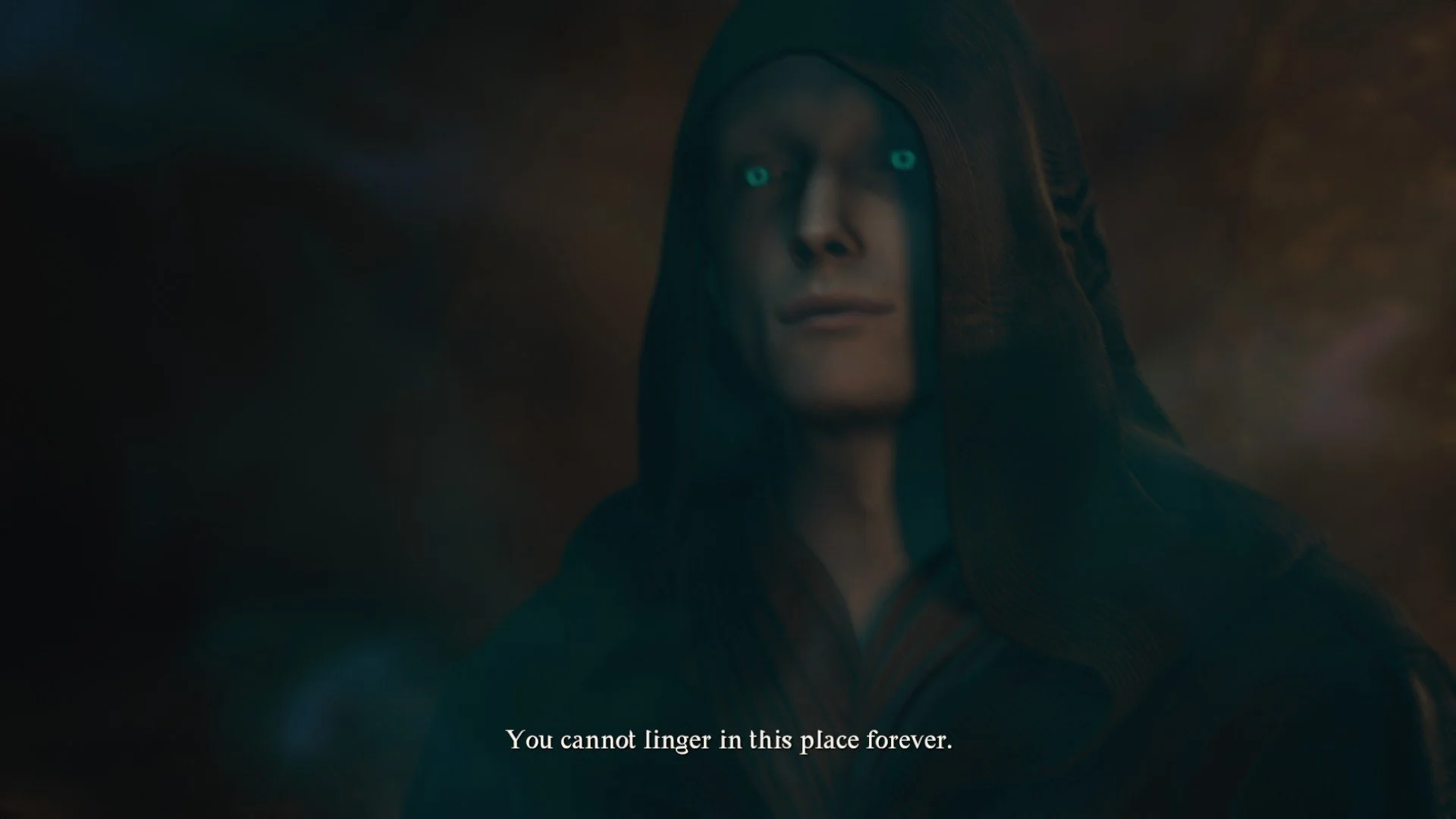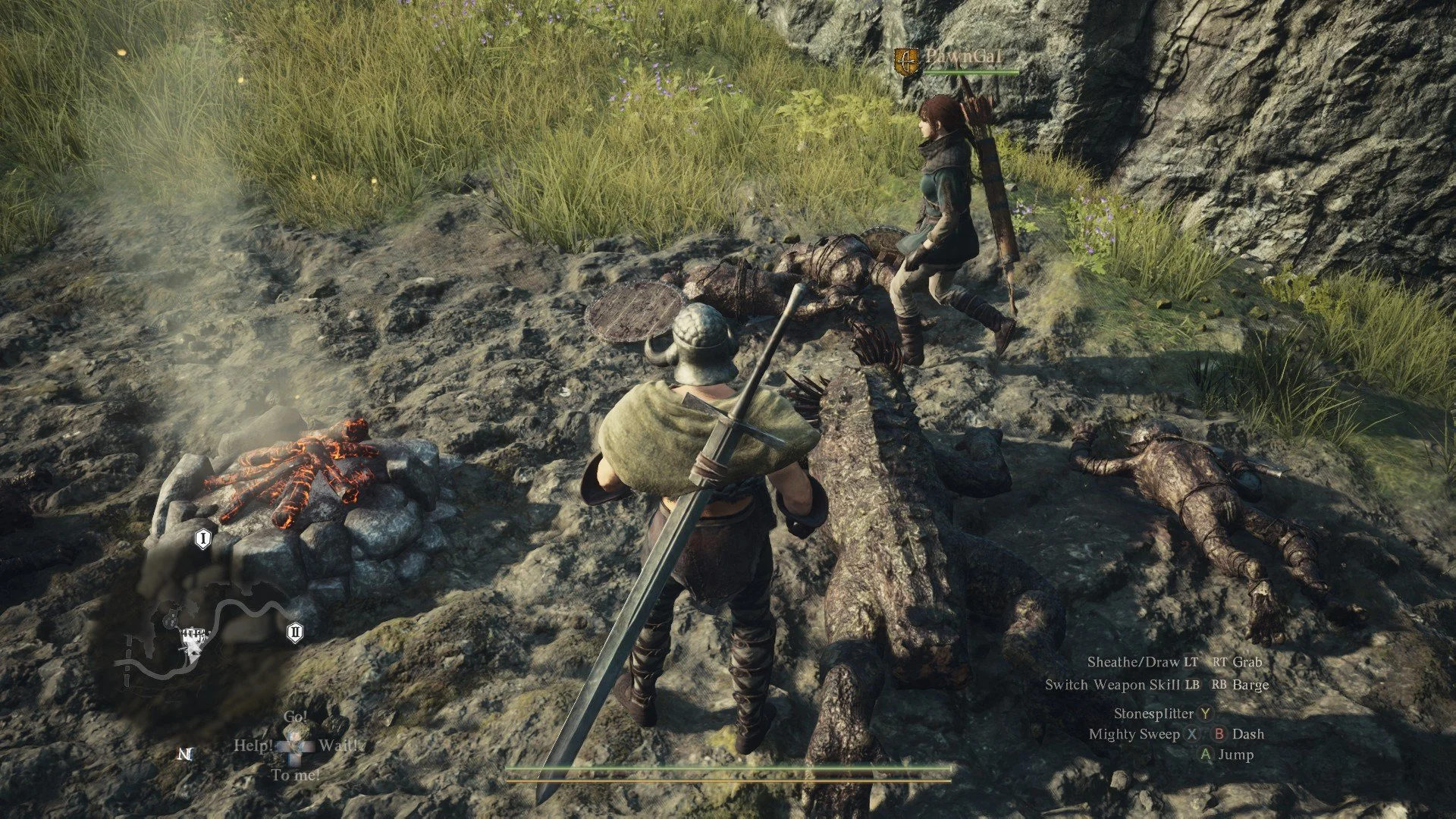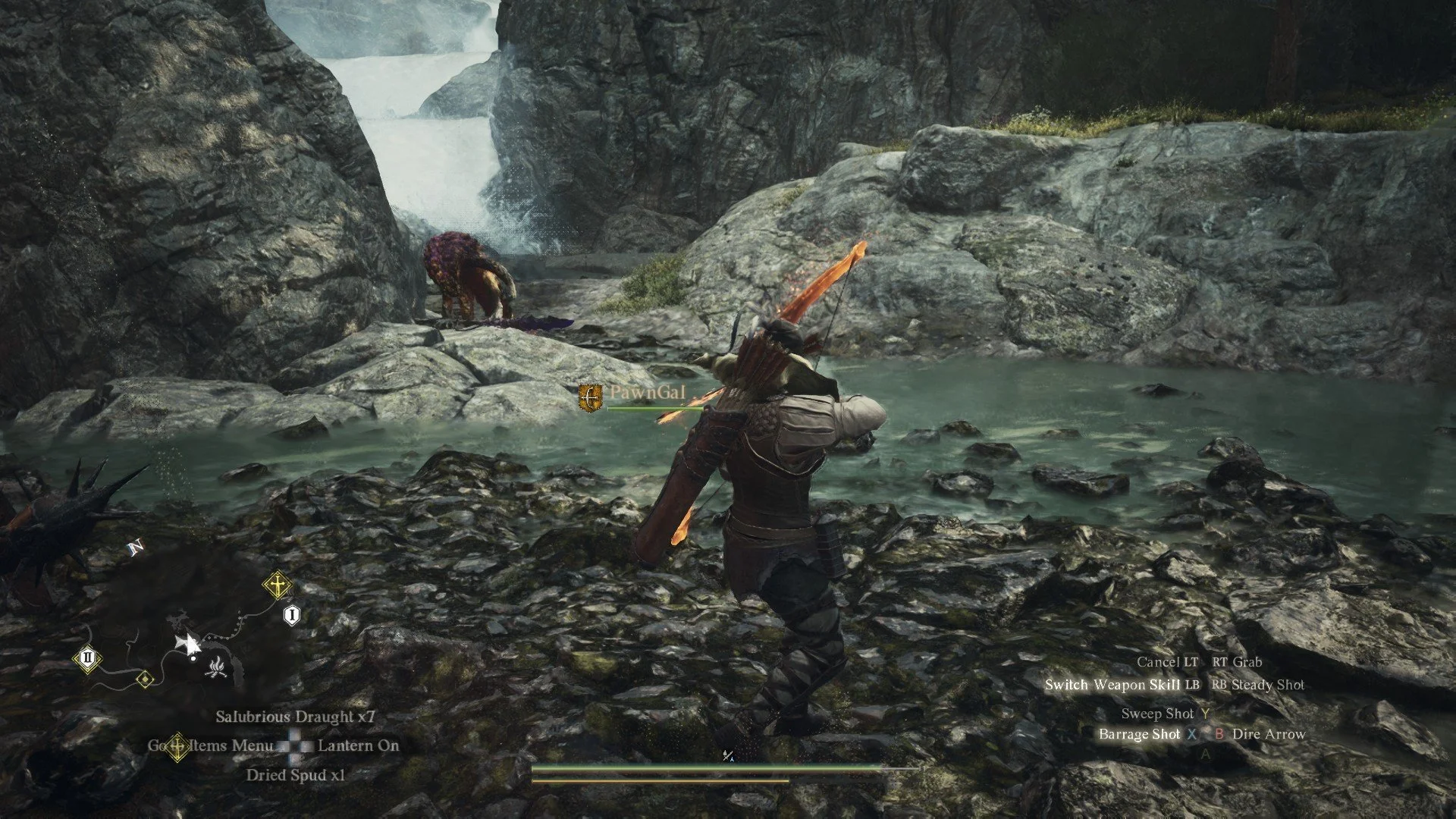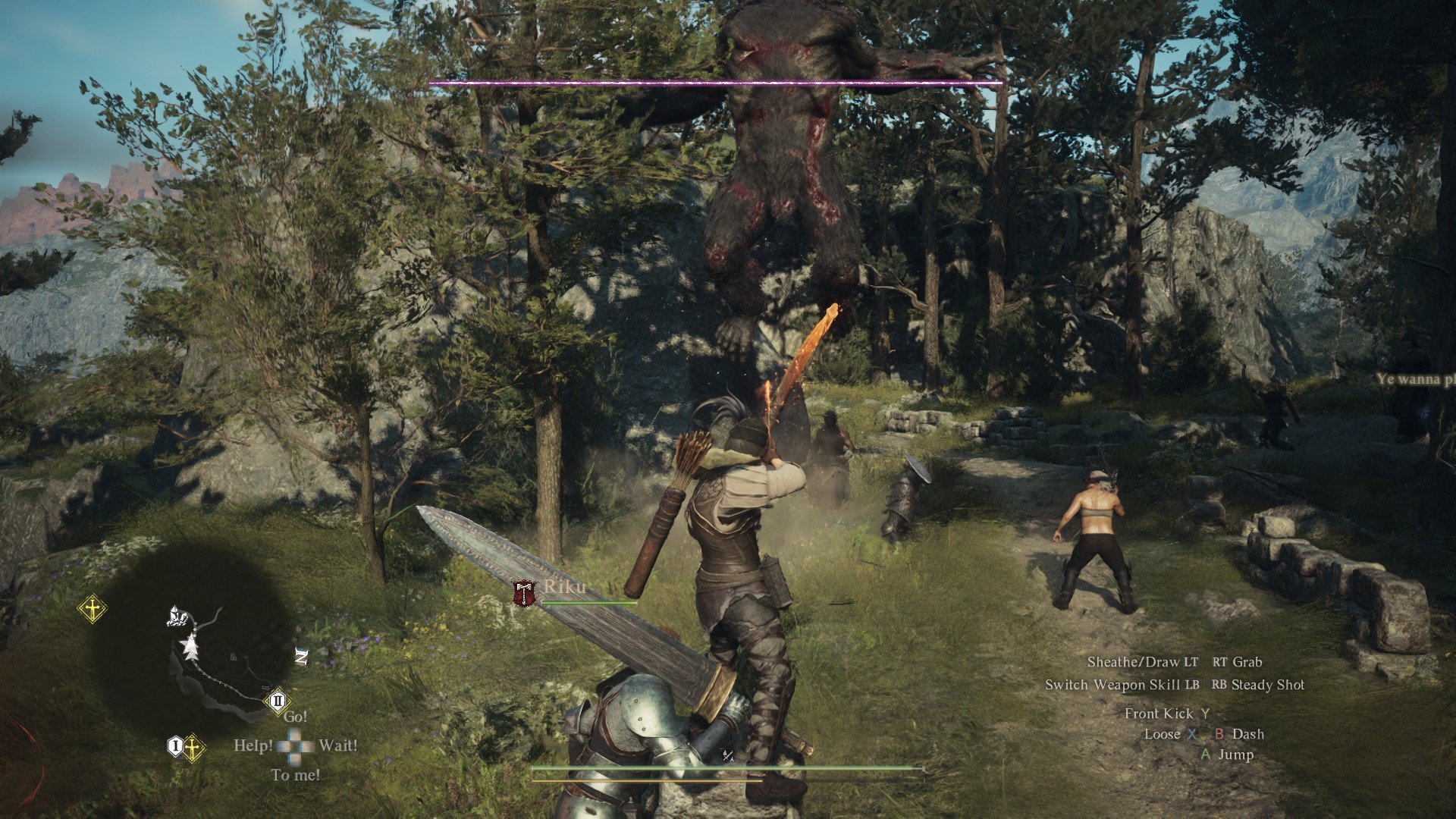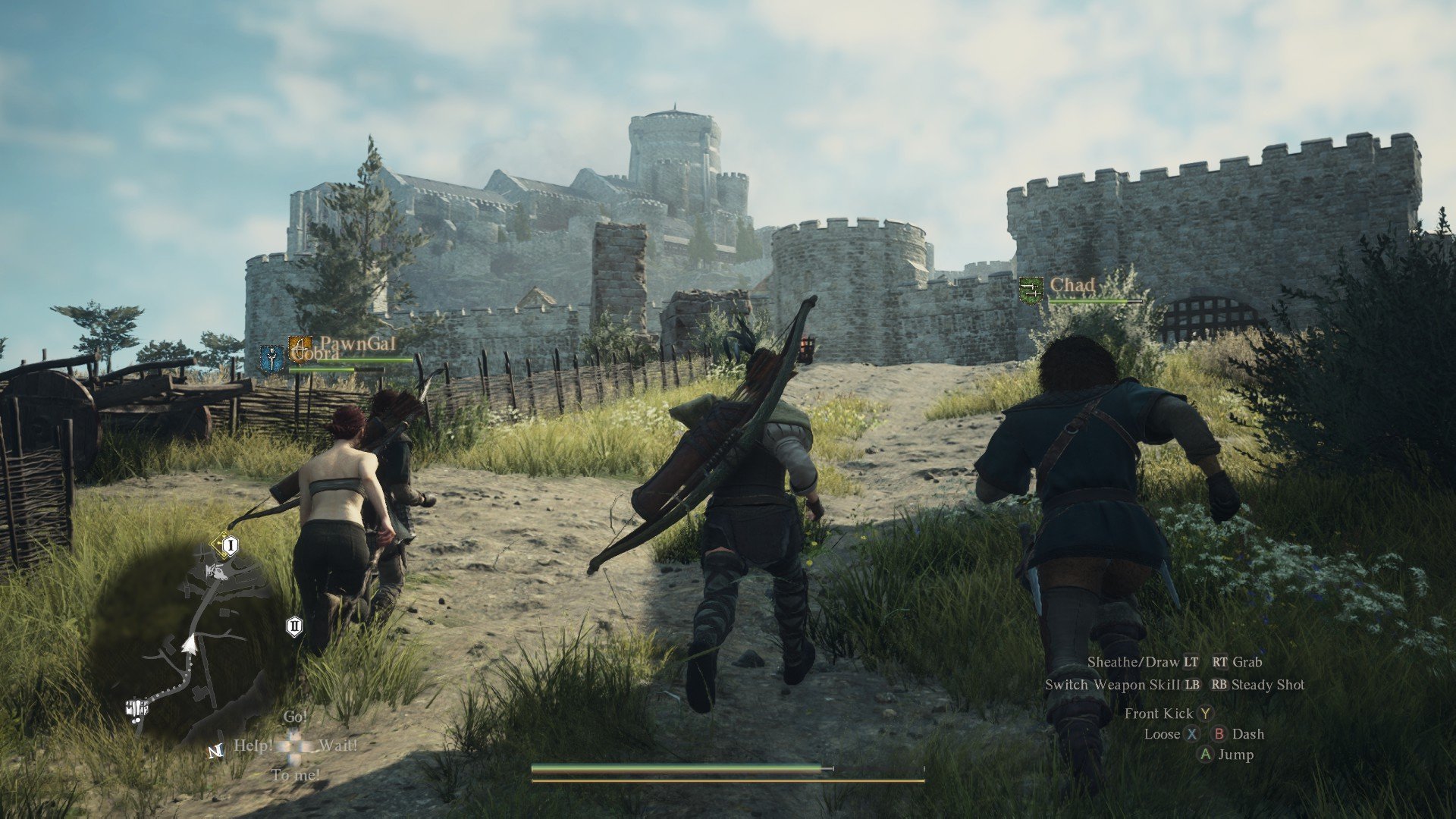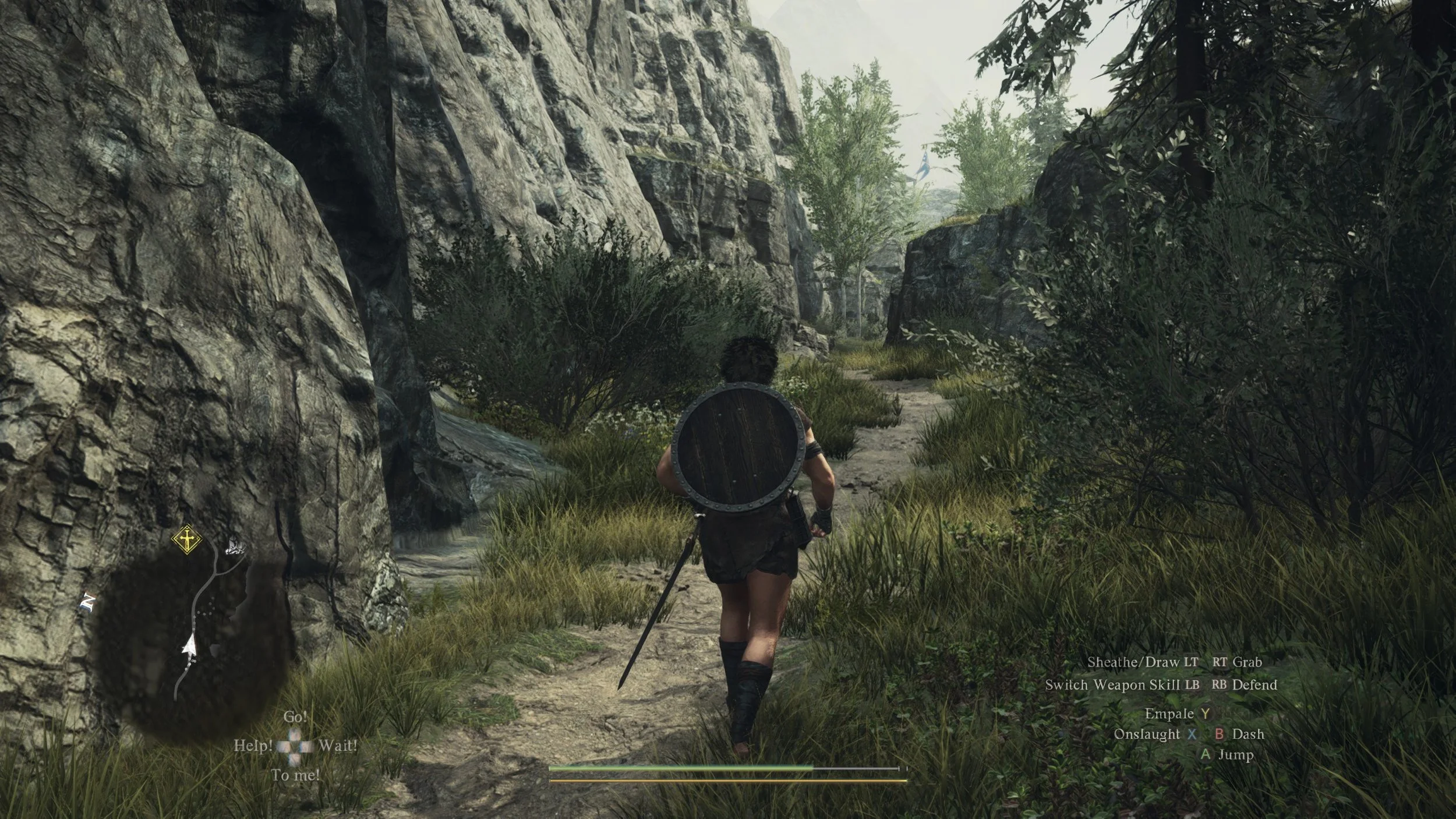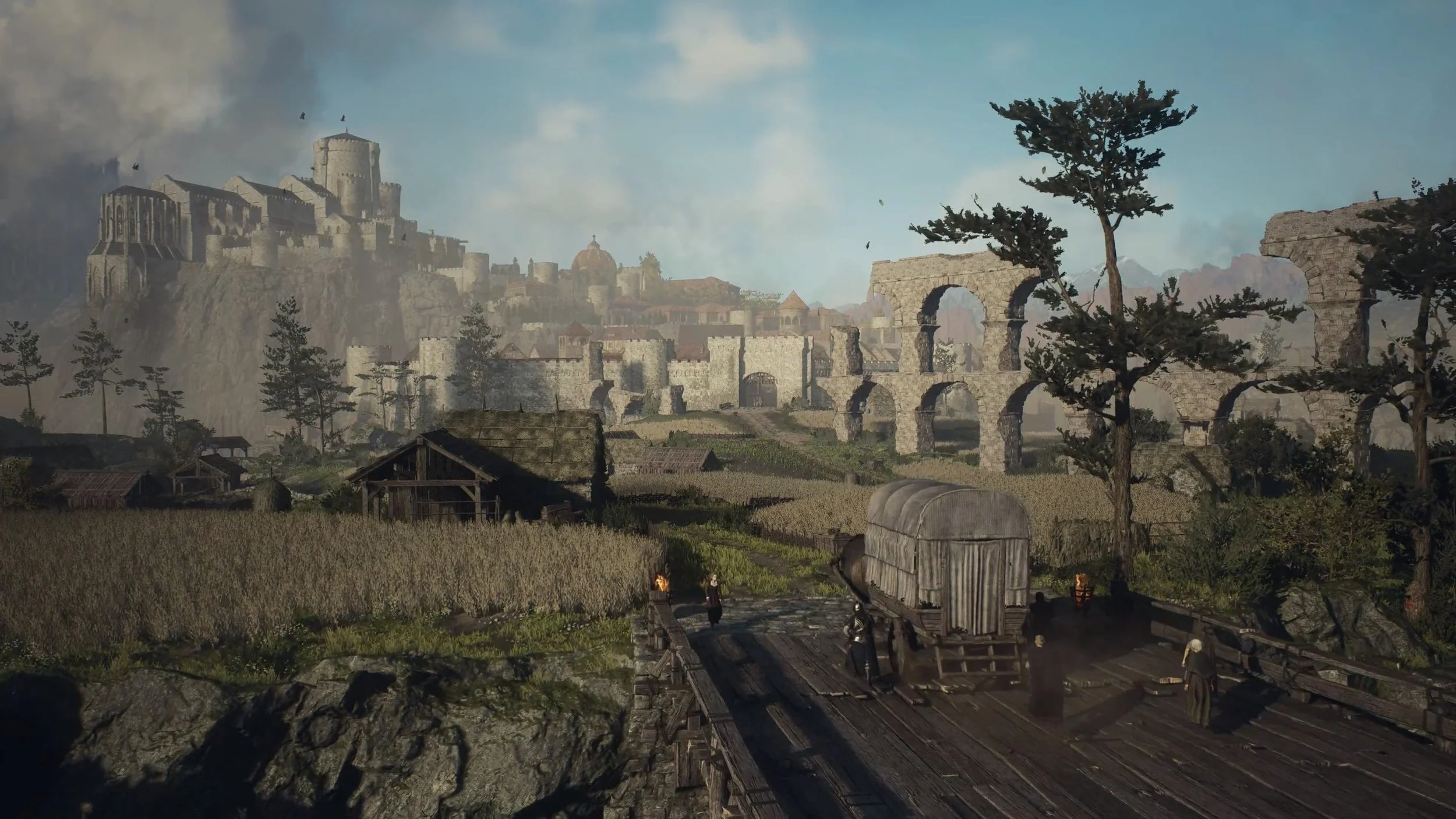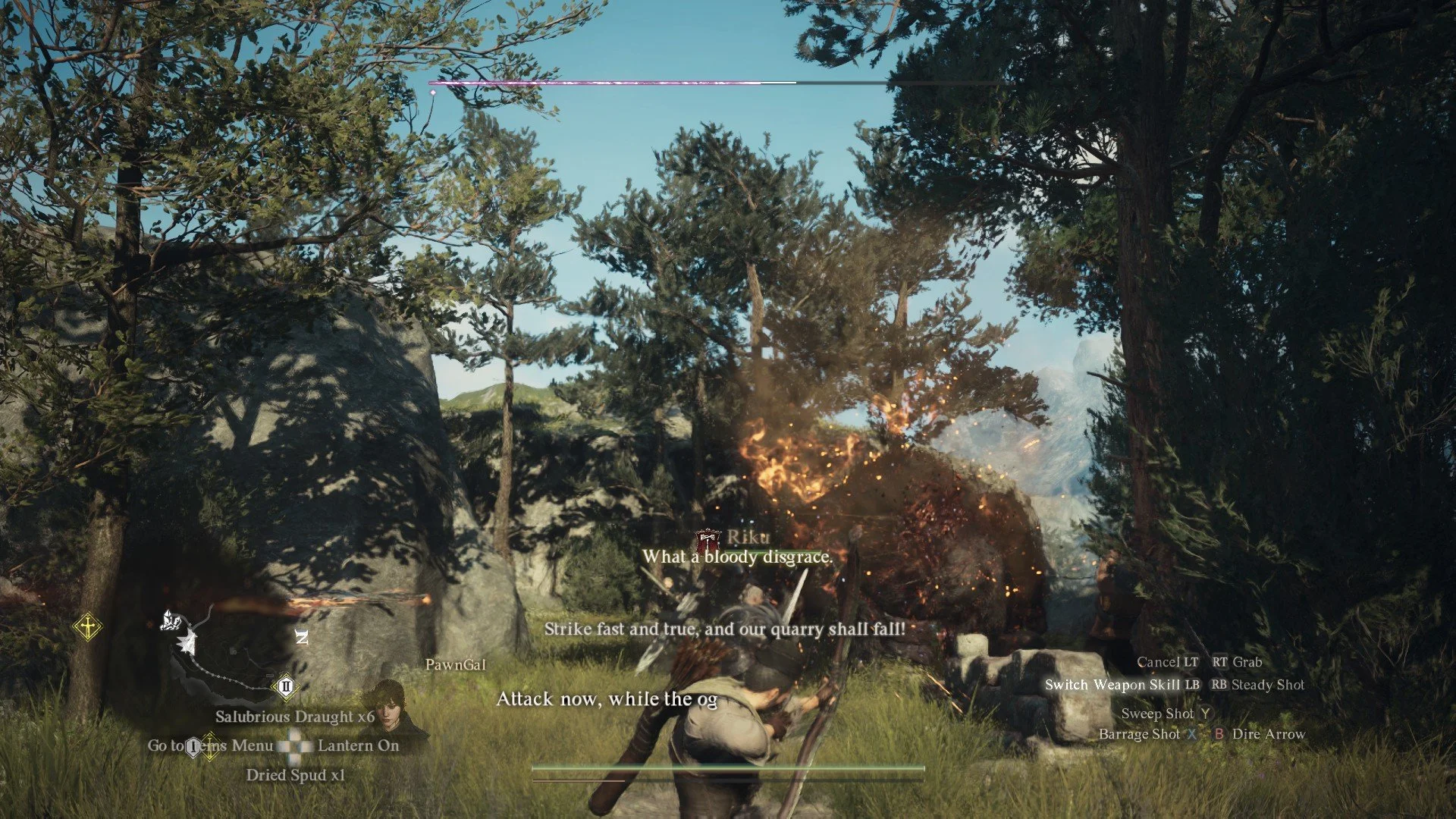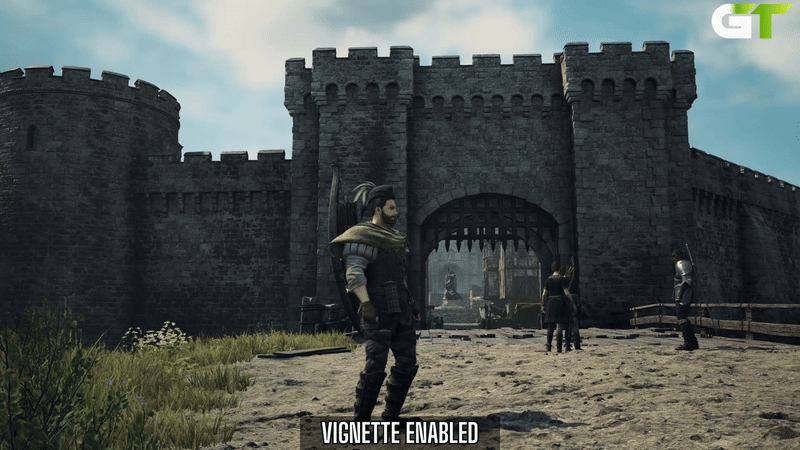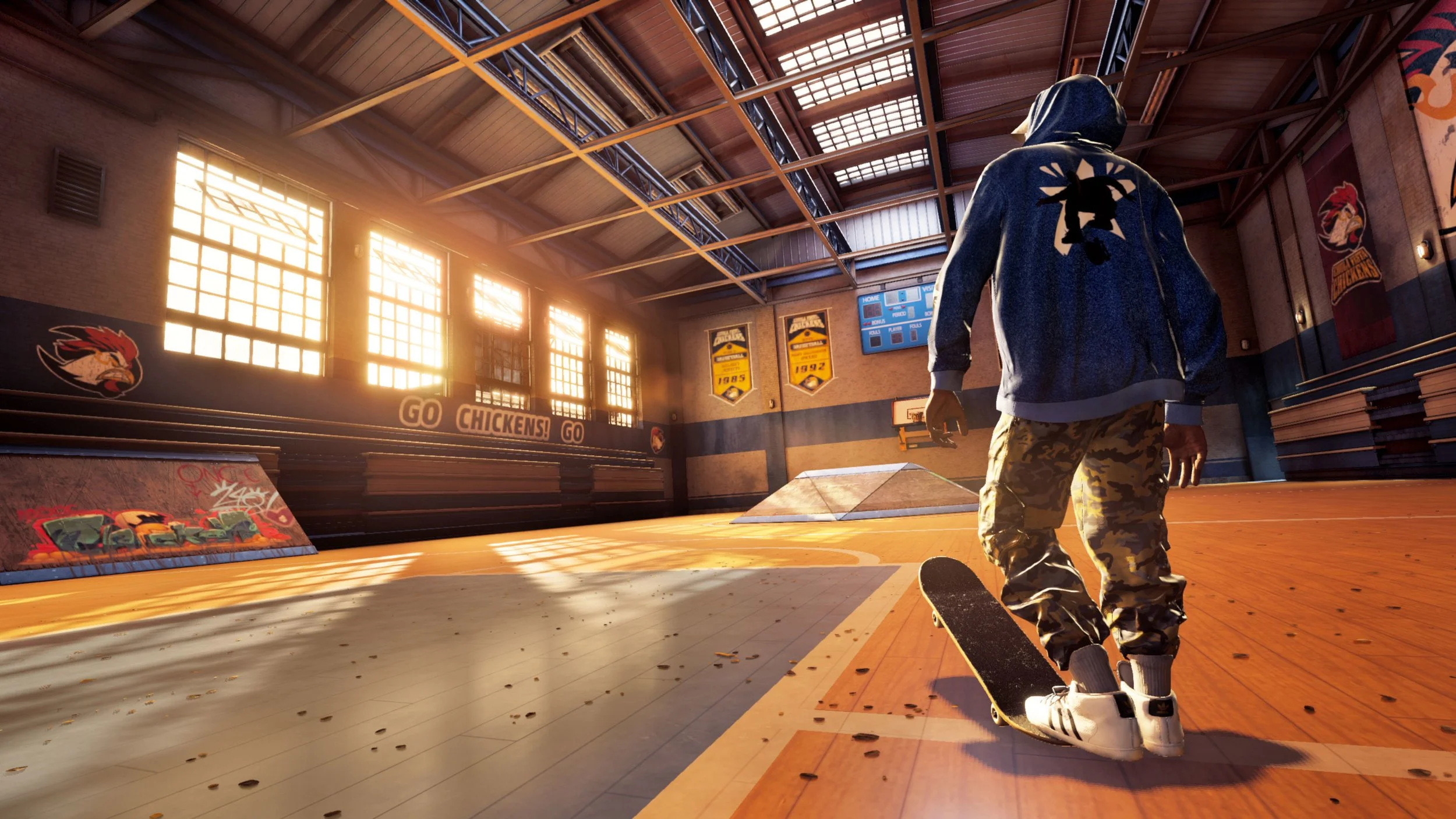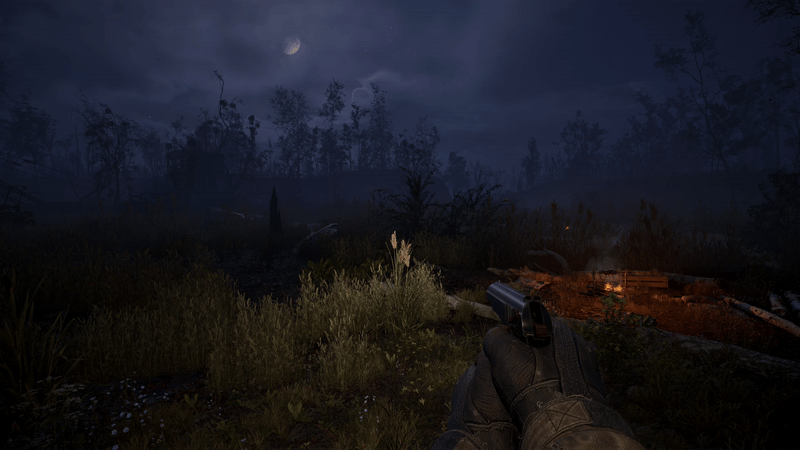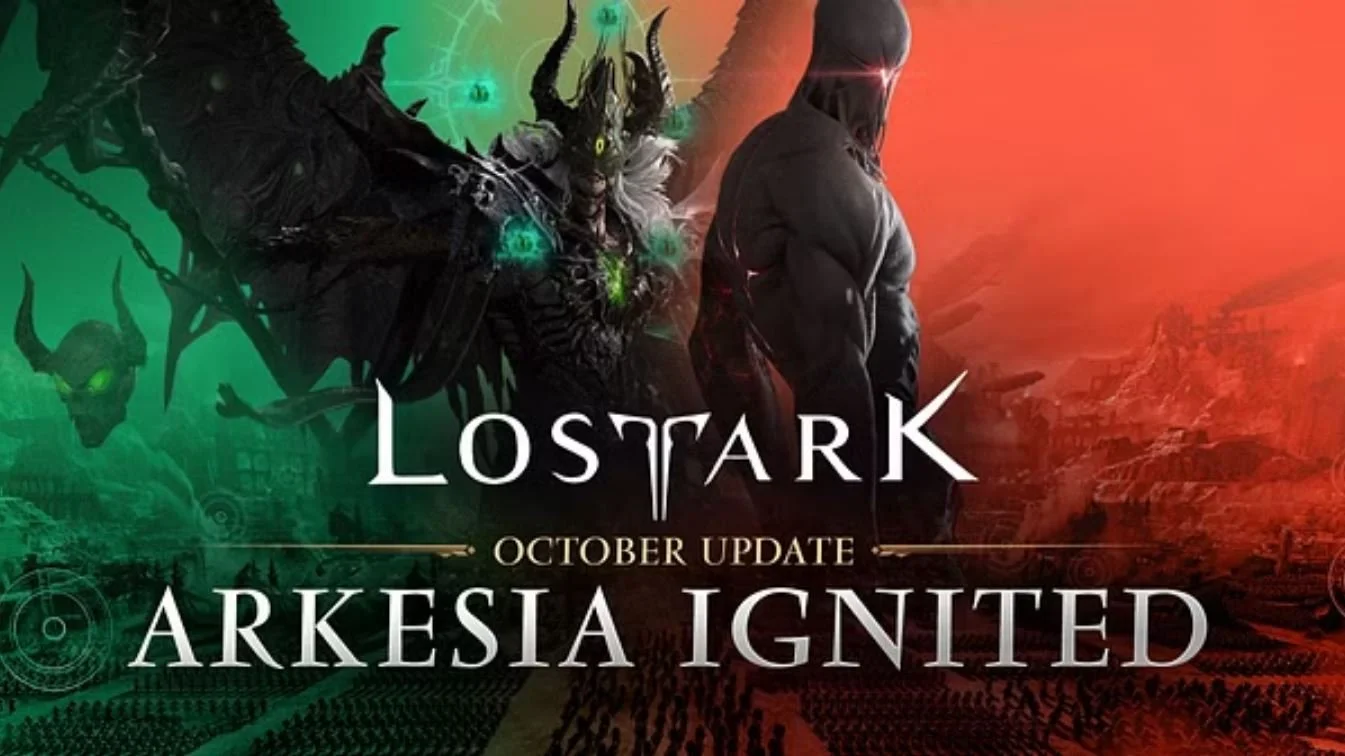I’ve been waiting for a sequel to Dragon’s Dogma ever since I played the PC version a few years back. It’s a deeply special game with so many unique ideas, engaging systems, and freedom that’s hard to come by in a single RPG experience. That is until Dragon’s Dogma 2, which takes everything from the first game, and pushes those to new heights.
Story and Gameplay
Similar to the first title, you play as the Arisen, someone marked by the Dragon by having their heart ripped out and who has to eventually the said Dragon in battle. This serves as the crux of the narrative, but it's not your immediate concern since you've lost all memory. As an Arisen, you are sworn to the throne of Vermund, but in your absence, a false Arisen has taken your place, and most of your initial hours will be spent trying to prove your worth and remembering who you are in the first place.
The story mirrors the first game in a few ways and you don't need to play it at all. This is a largely original tale, with new characters, locations, and races. For the most part, the story offers enough intrigue thanks to its focus on the political conflict within each Kingdom and factions that I was thoroughly absorbed enough to keep pursuing it. Often the urgency of the story pushes you to stick with it rather than jumping out to rough up a few goblins. The writing is fine and is mostly similar to the first game. The characters can feel a bit wooden at times, and while some of the NPCs are memorable thanks to their voice acting, this isn’t really a game you’re playing primarily for its story.
The world is really interesting and alive though and the different people you run into have all sorts of problems that need addressing, secrets to share, and advice to offer. You can’t go a few feet until you see a troubled face or a Pawn that can’t wait to give their recruitment speech. Overall, the world, its characters, and the immediate story are engaging enough that the gameplay shines with it rather than despite it.
The real meat and potatoes of Dragon’s Dogma 2 though is the combat and pawn system. Combat is a natural evolution of the first, and players can choose from a host of starter Vocations, each with their different weapon and armor types, as well as abilities. Advanced Vocations are unlocked over time, and are often tied to an in-game quest. For instance, the Warrior vocation can be unlocked after you retrieve a certain greatsword from a Goblin mine.
The way you unlock these new vocations is ingrained in the world in a meaningful way, and the game lets you switch between these without penalizing you severely. I started off as a Fighter and unlocked a few of its abilities, but eventually wanted to switch to a Warrior to see what that vocation offered. Now, my vocation level starts from scratch, but my previous vocation is left intact, meaning I can always switch back to Fighter and get all my abilities back without having to unlock those again.
This system means you’re not stuck with one playstyle, and you can switch between vocations quite easily. Each vocation feels different to play, and you’ll have to understand your role in a party to make the best use of it. Compared to the first one, I found Dragon’s Dogma 2 to be a bit more challenging, and skill-based, placing a deeper emphasis on understanding positioning, your toolset, and party composition. For instance, if you’re playing as an Archer, you can’t expect to hang around in the middle of a fight. You absolutely need to maintain distance even if you feel like you have strong attacks.
Stamina plays a big part in combat, and if you’re carrying a lot of stuff, it drains much faster. Spreading your items around the party, and at Ins becomes a necessity or you won’t be able to enjoy combat. There are so many abilities for each character to choose from, so deciding what works for you will always take a bit of experimentation. In the end, I settled on the Archer because of the agility offered by the vocation. I love moving around, jumping over things, kicking, and leaping as I fire a host of attacks without having to worry about my stamina dropping all the time.
Enemies hit hard, and attack in numbers. I like how aggressive most of the enemies in this game are. They will often feel relentless in their attacks, which makes every battle feel all the more intense. Larger enemies like Ogres will need concentrated attacks to fully take down, and even then there’s a good chance that a flying kick to the jaw will end your life. You can still climb onto larger foes in Shadow of the Colossus style, and stab at them with all your might.
As mentioned before, the world of Dragon’s Dogma is full of surprises, and the closest comparison I have is to Elden Ring. There are secrets to find, mines and caves to explore, and quests to take on. Oh, and did I mention that once you start a quest, it will continue to progress regardless of your intervention? This is such an immersive feature because it makes simple tasks feel important and real.
Pawns are a big part of the DNA, and these companions become an ever-present aspect of your journey. Hearing them talk about you with reverence, and concern feels comforting in a way. They’ll sometimes talk to each other, and point out things in the environment, and your main pawn will always value your decisions. It’s kind of funny how overtly loyal they sometimes sound but that’s part of the charm, and what makes this and the original so special.
Overall, while there’s still a lot more to talk about, I want players to discover these secrets, and mechanics on their own. This is everything one could’ve asked for in a sequel, and if you’ve ever been interested in the series but couldn’t gel with the dated presentation of the first game, Dragon’s Dogma 2 offers a world that’s world exploring, and conquering.
Audio and Visuals
This is the first open-world RE Engine title, and it’s making use of CAPCOM’s in-house tech to deliver a world that’s reactive, choke-full of detail, and stunning at times. The way grass sways as you charge up an attack, how large enemies topple down smaller buildings, and trees, how each spell brilliantly shines at night, and the way each enemy topples and reacts to your attacks. Everything about its presentation comes together to convey force and reactivity. This is what separates it from many other action RPGs where combat doesn’t actively take environments into account.
The character models are super detailed, and it isn’t limited to just the character creator screen, but in-game NPCs often look very nice. I particularly like the touches on armor sets and weaponry. The music also does a great job of setting the tone for adventure, and perfectly elevates combat encounters.
The only thing I’m not a fan of is how the water looks in the game. I couldn’t try ray-tracing on my PC, and maybe it’s better there, but when combined with DLSS, there’s some ghosting around your character when water is in sight.
Feedback
I think Dragon’s Dogma 2 is an exceptional game, and I’m glad CAPCOM didn’t just try to homogenize it into any other RPG. It has niche elements that only particular people will like, which is perfectly fine.
The only thing that soured my experience was the performance. I think the game looks great as mentioned above and there’s obviously a lot going on, but on my RTX 3060 paired with a Ryzen 5 5600, I had to use DLSS even at 1080p to get somewhere close to 60 FPS. Framerate would often drop to the 30s in crowded areas or when particular particle effects covered the screen. This would sometimes make combat encounters sluggish, and I couldn’t do much about it.
At 1080p, the overall presentation feels pretty blurry too because of TAA, and even with DLSS, I wouldn’t call the experience ideal. I’m not sure if a performance like this is warranted based purely on visuals. Maybe a few more rounds of optimization would benefit it a bit, but right now, I would highly recommend watching a few benchmarks to see if your PC can handle it.
Verdict
CAPCOM has finally revived the Dragon’s Dogma series with an ambitious sequel that celebrates the joy of discovery, adventure, and action with exceptional depth and care. It’s a sequel that meaningfully iterates on the original without losing sight of what attracted fans in the first place and offers a massive world full of mystery and danger at every corner. It's beautiful to look at with a combat system that never loses its momentum, and memorable pawns that you’ll grow to love. Dragon’s Dogma 2 is a triumphant success and a successful realization of Hideaki Itsuno’s vision.

